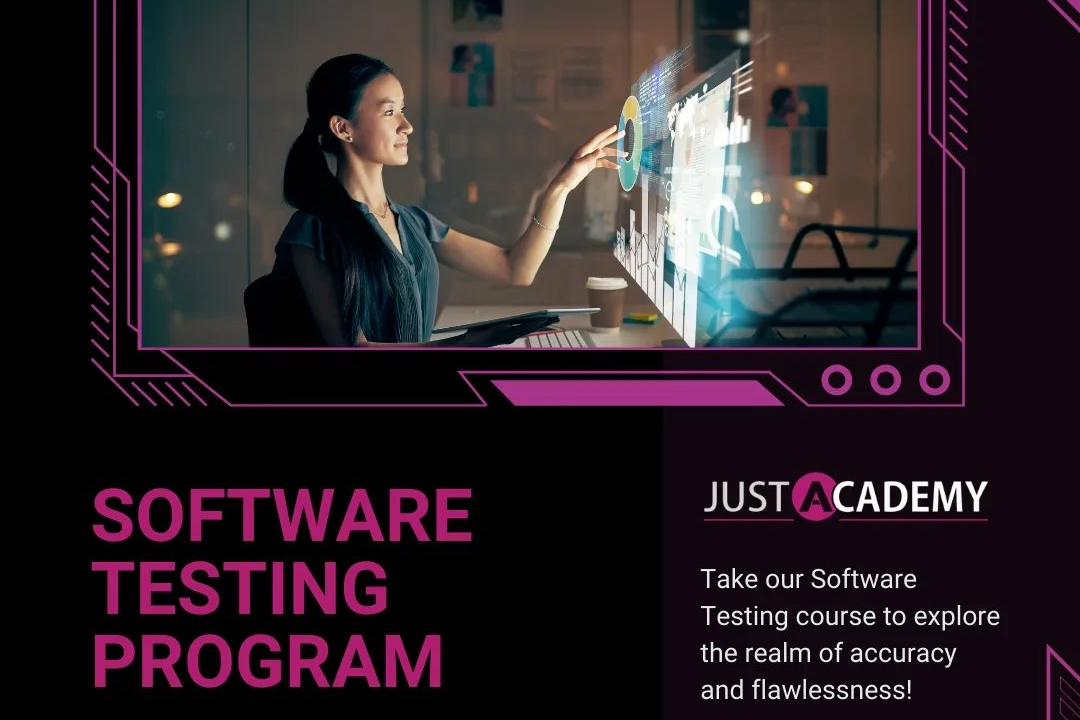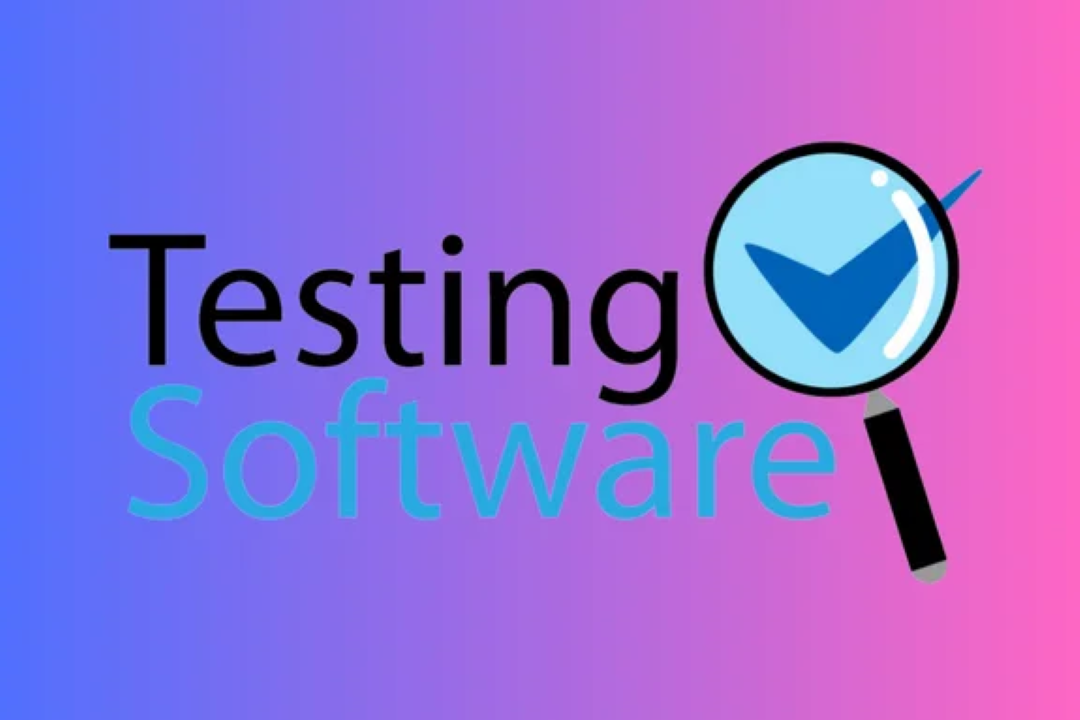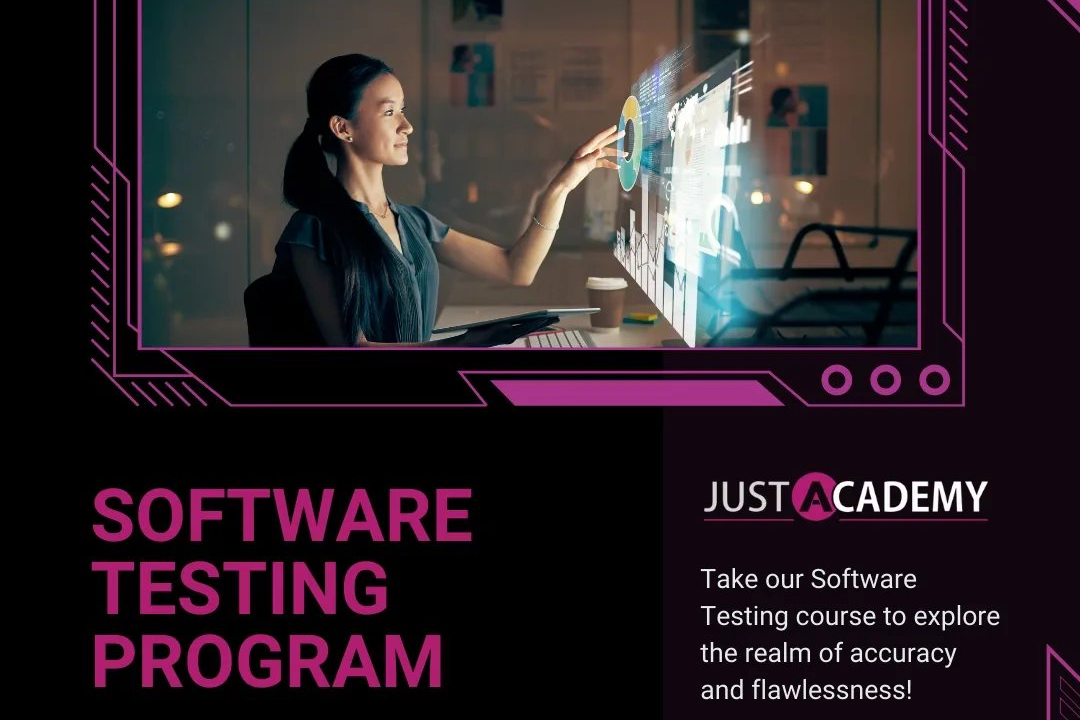Online Course Selenium Webdriver With Java Basics Advance Architect
The "Selenium WebDriver with Java: Basics to Advanced Architectural Techniques" online course is des
Online Course Selenium Webdriver With Java Basics Advance Architect
The “Selenium WebDriver with Java: Basics to Advanced Architectural Techniques” online course is an invaluable resource for anyone looking to excel in the field of software testing and automation. By mastering Selenium WebDriver, a widely-used tool for automating web applications, and learning Java programming, participants can enhance their efficiency in creating and executing test scripts. This course is particularly beneficial for professionals aiming to streamline their testing processes, ensure code quality, and reduce time-to-market for software releases. With real-time projects and a deep dive into advanced architectural strategies, learners will emerge with the expertise to develop scalable and maintainable automation frameworks, positioning themselves as key contributors in a competitive job market.
To Download Our Brochure: https://www.justacademy.co/download-brochure-for-free
Message us for more information: +91 9987184296
The “Selenium WebDriver with Java: Basics to Advanced Architectural Techniques” online course is an invaluable resource for anyone looking to excel in the field of software testing and automation. By mastering Selenium WebDriver, a widely used tool for automating web applications, and learning Java programming, participants can enhance their efficiency in creating and executing test scripts. This course is particularly beneficial for professionals aiming to streamline their testing processes, ensure code quality, and reduce time to market for software releases. With real time projects and a deep dive into advanced architectural strategies, learners will emerge with the expertise to develop scalable and maintainable automation frameworks, positioning themselves as key contributors in a competitive job market.
Course Overview
The “Online Course: Selenium WebDriver with Java - Basics to Advanced Architectural Techniques” is meticulously designed to guide participants through the essential and advanced aspects of automated testing using Selenium WebDriver with Java. This comprehensive program covers everything from the fundamental concepts of automation testing to advanced architectural strategies, equipping learners with the skills to create robust and scalable test frameworks. Through interactive lessons, hands-on projects, and real-time applications, students will gain practical experience in writing efficient test scripts, implementing best practices, and optimizing their testing processes. By the end of the course, participants will be well-prepared to tackle real-world challenges in software testing and automation, making them invaluable assets to any development team.
Course Description
The “Online Course: Selenium WebDriver with Java - Basics to Advanced Architectural Techniques” offers a thorough exploration of automated testing using Selenium WebDriver integrated with Java programming. This course is designed for both beginners and those looking to enhance their skills, covering essential concepts such as setting up the environment, writing test scripts, and utilizing various Selenium functionalities. As participants progress, they will delve into advanced architectural techniques, including creating modular test frameworks and implementing best practices for scalable automation. With a focus on real-time projects, this course ensures that learners apply their knowledge practically, preparing them for professional challenges in the field of software testing and automation.
Key Features
1 - Comprehensive Tool Coverage: Provides hands-on training with a range of industry-standard testing tools, including Selenium, JIRA, LoadRunner, and TestRail.
2) Practical Exercises: Features real-world exercises and case studies to apply tools in various testing scenarios.
3) Interactive Learning: Includes interactive sessions with industry experts for personalized feedback and guidance.
4) Detailed Tutorials: Offers extensive tutorials and documentation on tool functionalities and best practices.
5) Advanced Techniques: Covers both fundamental and advanced techniques for using testing tools effectively.
6) Data Visualization: Integrates tools for visualizing test metrics and results, enhancing data interpretation and decision-making.
7) Tool Integration: Teaches how to integrate testing tools into the software development lifecycle for streamlined workflows.
8) Project-Based Learning: Focuses on project-based learning to build practical skills and create a portfolio of completed tasks.
9) Career Support: Provides resources and support for applying learned skills to real-world job scenarios, including resume building and interview preparation.
10) Up-to-Date Content: Ensures that course materials reflect the latest industry standards and tool updates.
Benefits of taking our course
Functional Tools
1 - Selenium WebDriver
Selenium WebDriver is the core tool utilized in the course, designed to automate web applications for testing purposes. Unlike its predecessor, Selenium RC, WebDriver interacts directly with the browser, enabling developers to write tests in a variety of programming languages, including Java. Through the course, students will learn how to create robust test scripts that can simulate user actions in real web browsers, thus increasing test coverage and ensuring the performance and functionality of applications. The hands on experience with WebDriver will empower learners to effectively manage browser sessions, manipulate web elements, and perform advanced actions, making them proficient in automated testing.
2) Java
Java serves as the primary programming language for this course, providing students with a solid foundation in coding for automation. With its object oriented structure, Java enables learners to create organized and scalable test scripts. Throughout the course, participants will grasp fundamental Java concepts such as classes, objects, methods, and exception handling, which are critical for writing effective Selenium tests. Additionally, the language’s vast library ecosystem will be explored, equipping students with tools to enhance their test automation frameworks.
3) TestNG
TestNG is a testing framework inspired by JUnit and NUnit that students will use in conjunction with Selenium. It facilitates the creation and execution of tests within Java, allowing for annotations, data driven testing, and parallel execution of test scripts. The course will cover how to configure TestNG, create test cases, and manage test suites, enhancing the students’ ability to organize and execute their automated tests systematically. Mastery of TestNG will enable participants to generate comprehensive reports, track test results, and gain insights into the performance of their automated test cases.
4) Maven
Maven is a build automation tool used primarily for Java projects, and this course will introduce students to its role in managing project dependencies and build lifecycle. Participants will learn how to set up a Maven project for their Selenium testing, including creating a `pom.xml` file to manage libraries, dependencies, and plugins required for their automation scripts. Understanding Maven is essential for simplifying project management, ensuring that the right versions of libraries are used and facilitating easy integration with various testing and reporting tools.
5) Eclipse IDE
Eclipse Integrated Development Environment (IDE) is a crucial tool for coding and debugging Java applications, including Selenium test scripts. In the course, learners will gain familiarity with the Eclipse environment, becoming proficient in utilizing its features like code completion, debugging tools, and project management capabilities. Eclipse provides an efficient and user friendly interface for developing automation scripts, allowing students to write, test, and debug their code seamlessly. The hands on experience with Eclipse ensures that participants can effectively create and maintain their Selenium projects.
6) Git
Version control is paramount in any software development project, and Git will be introduced for managing code changes during the course. Students will learn how to use Git for version control, enabling them to track changes, collaborate with other developers, and maintain the history of their automation scripts. They will understand branching, committing, and merging, which are critical in collaborative environments. By incorporating Git into their workflow, participants will be equipped with professional best practices that make code management more efficient and foster teamwork in software testing projects.
7) Selenium Grid
Selenium Grid is an essential tool for running tests on multiple machines and browsers simultaneously, significantly reducing the time required for test execution. The course will provide an in depth understanding of how to configure and use Selenium Grid, allowing students to scale their test automation efforts effectively. By learning to set up a hub and nodes, participants will develop the skills necessary to execute tests across various environments in parallel, enhancing both efficiency and coverage in testing processes, which is critical for large scale applications.
8) Behavior Driven Development (BDD) with Cucumber
Behavior Driven Development (BDD) is a software development approach that enhances collaboration among developers, testers, and non technical stakeholders by specifying requirements in natural language. In this course, students will learn how to integrate Cucumber with Selenium to write test scripts in Gherkin syntax, which makes it easier to communicate test scenarios and expected outcomes. Participants will master writing feature files, step definitions, and hooks, facilitating a clearer understanding of application behavior, ultimately improving the testing process and ensuring alignment with business requirements.
9) Page Object Model (POM)
The Page Object Model is a design pattern that enhances test maintenance and reduces code duplication by separating test scripts from the web application’s structure. Throughout the course, students will learn how to implement the Page Object Model in their Selenium tests. This will involve creating separate classes for each page of the application, encapsulating all functionalities and elements associated with that page. Mastering POM will result in cleaner, more readable, and maintainable test code, allowing for easier updates as application elements change.
10) Continuous Integration/Continuous Deployment (CI/CD)
The course will explore the principles of Continuous Integration and Continuous Deployment, which are integral to modern software development practices. Students will understand how to integrate their automated tests with popular CI/CD tools like Jenkins or GitLab CI. They will learn how to set up a pipeline that automatically runs tests whenever code changes are committed, ensuring immediate feedback on the stability of the application. This knowledge will empower participants to adopt DevOps practices, enhance collaboration, and streamline the deployment process.
11 - API Testing with Postman
API testing has become critical in verifying the backend functionality of applications. In this course, students will explore how to conduct API testing using Postman alongside their Selenium tests. They will learn to create and execute API requests, validate responses, and automate API tests within the test suite. Understanding API testing concepts and best practices will allow participants to ensure that all application components interact correctly and function as intended.
12) Mobile Testing with Appium
As mobile applications have gained prominence, the course will include an introduction to mobile testing using Appium. Students will learn how to set up Appium for automating mobile applications and how to write tests for both Android and iOS platforms. This section will cover aspects such as mobile specific elements, gestures, and device configurations, equipping learners with the skills to expand their testing capabilities beyond web applications to encompass mobile environments.
13) Advanced Selenium Features
The course will delve into advanced features of Selenium, including handling dynamic web elements, window and frame handling, and integrating with other tools like Sikuli for image based testing. By exploring these advanced topics, students will gain in depth knowledge of Selenium's capabilities, preparing them to tackle complex scenarios encountered in real world applications and ensuring their automation scripts can handle a wide variety of testing challenges.
14) Test Automation Best Practices
Best practices in test automation are essential for ensuring the efficacy and maintainability of test scripts. The course will cover essential practices such as code reviews, regular refactoring, and the implementation of proper logging and reporting mechanisms. Students will learn about the importance of test case prioritization, selecting the right tests for automation, and fostering a collaborative testing culture within teams. Adopting these best practices will enable learners to contribute to a more efficient and high quality testing process.
15) Real Time Projects and Case Studies
To solidify their learning experience, students will engage in real time projects and case studies that mimic industry scenarios. These practical exercises will challenge participants to apply their knowledge in a real world context, working on projects that require them to integrate various tools and methodologies they have learned throughout the course. Completing these projects will not only enhance their skills but also provide them with tangible outcomes to showcase to potential employers.
16) Industry Recognized Certification
Upon successful completion of the course, participants will receive a certification from JustAcademy, validating their proficiency in Selenium automation testing and related tools. This industry recognized certification serves as a valuable credential for students, enhancing their resumes and making them more competitive in the job market. The certification will signify their commitment to learning and expertise in automation testing, furthering their career opportunities in the tech industry.
Browse our course links : https://www.justacademy.co/all-courses
To Join our FREE DEMO Session:
This information is sourced from JustAcademy
Contact Info:
Roshan Chaturvedi
Message us on Whatsapp: +91 9987184296
Email id: info@justacademy.co












